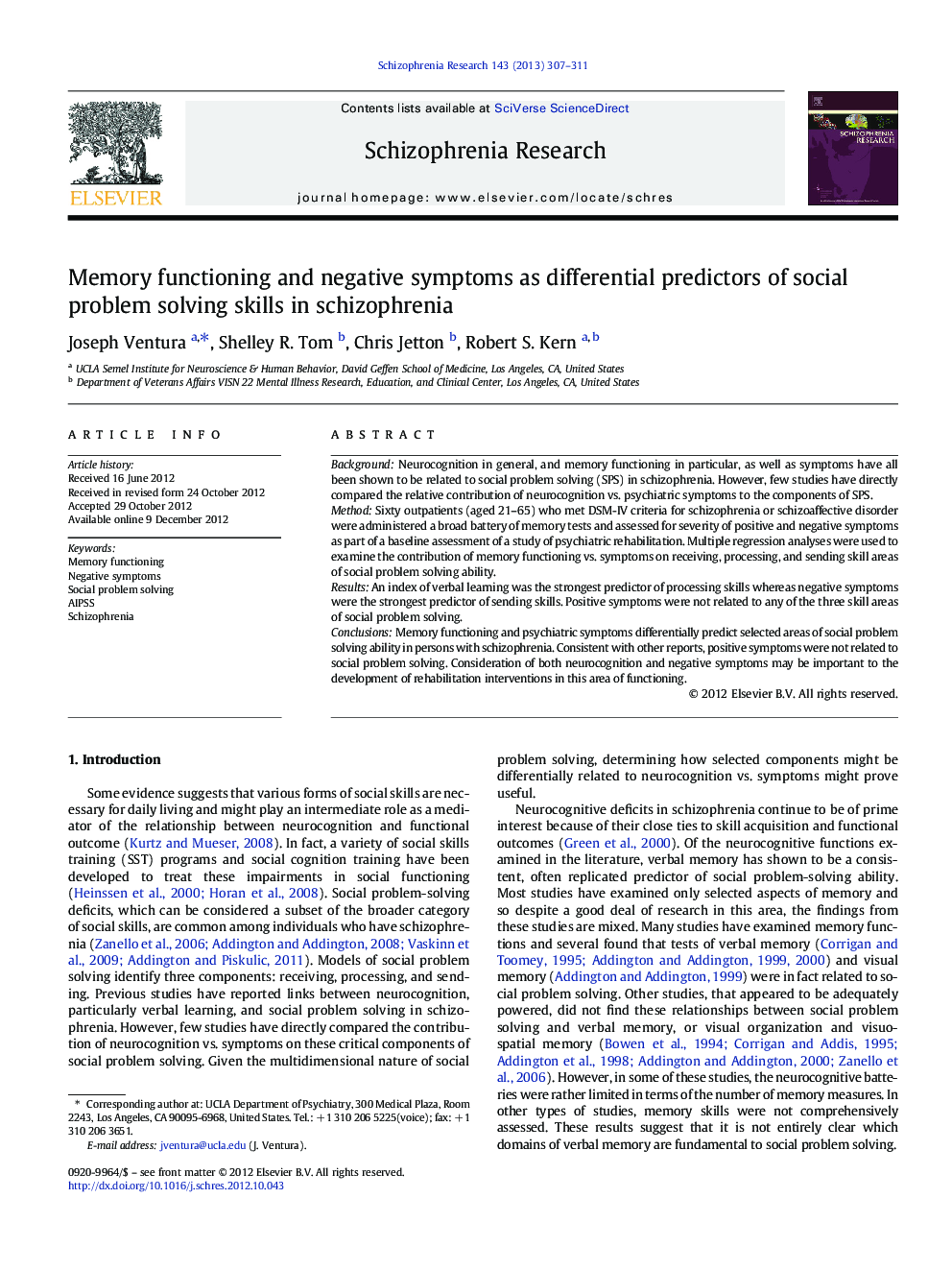| Article ID | Journal | Published Year | Pages | File Type |
|---|---|---|---|---|
| 341376 | Schizophrenia Research | 2013 | 5 Pages |
BackgroundNeurocognition in general, and memory functioning in particular, as well as symptoms have all been shown to be related to social problem solving (SPS) in schizophrenia. However, few studies have directly compared the relative contribution of neurocognition vs. psychiatric symptoms to the components of SPS.MethodSixty outpatients (aged 21–65) who met DSM-IV criteria for schizophrenia or schizoaffective disorder were administered a broad battery of memory tests and assessed for severity of positive and negative symptoms as part of a baseline assessment of a study of psychiatric rehabilitation. Multiple regression analyses were used to examine the contribution of memory functioning vs. symptoms on receiving, processing, and sending skill areas of social problem solving ability.ResultsAn index of verbal learning was the strongest predictor of processing skills whereas negative symptoms were the strongest predictor of sending skills. Positive symptoms were not related to any of the three skill areas of social problem solving.ConclusionsMemory functioning and psychiatric symptoms differentially predict selected areas of social problem solving ability in persons with schizophrenia. Consistent with other reports, positive symptoms were not related to social problem solving. Consideration of both neurocognition and negative symptoms may be important to the development of rehabilitation interventions in this area of functioning.
